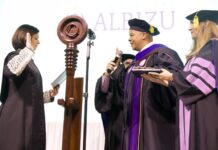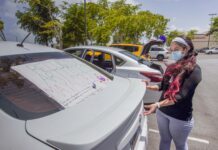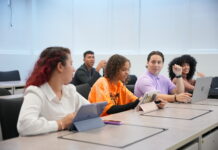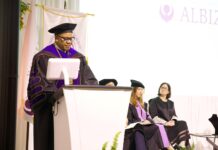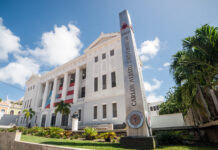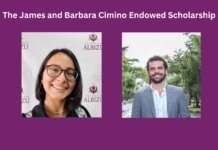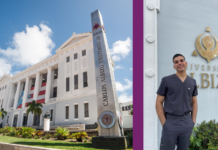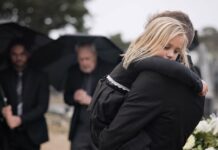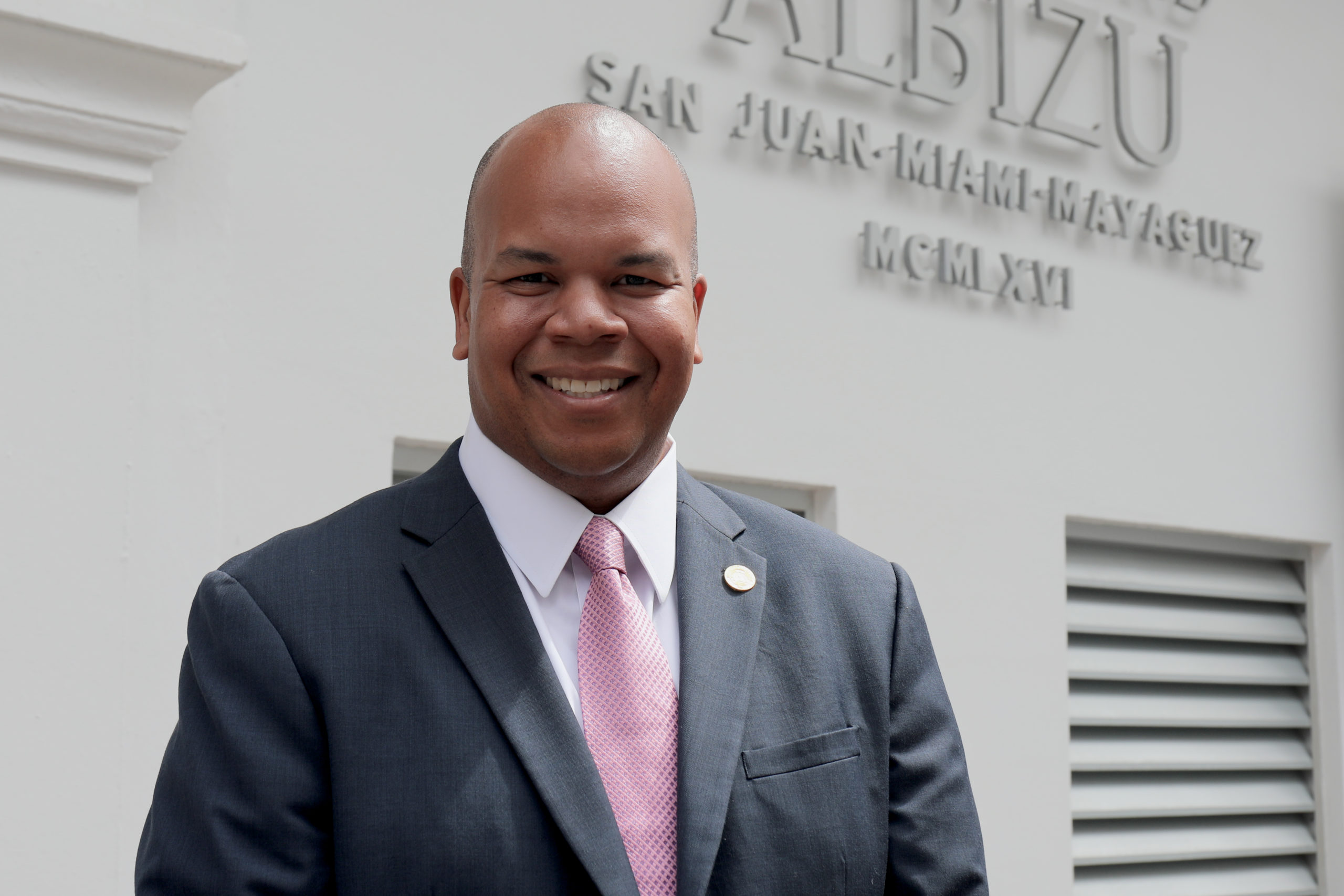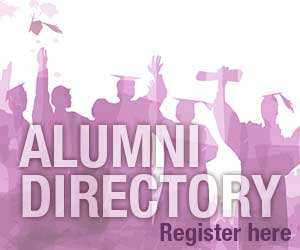F
ollowing his appointment as President of Albizu University, and his relocation to Puerto Rico, Dr. Nelson Soto shares with the Albizu community his vision for the institution and what are his priorities for the University.
What should be the role of the University in a post pandemic world?
Dr. Soto: We have to remember the importance of this university besides education, besides knowledge, besides information. The call of this institution is always to give back to the community. Now in this post pandemic world, more than ever we need individuals who can really understand and can focus on mental health. As an institution that is specialized in mental health, and that is based in psychology, we need to make sure that we are helping and that we are at the forefront of the society in dealing with the pandemic and the aftermath of the pandemic. That is our focus. We should continue moving forward to that area. That will be our goal.
What will be your priority as a president?
Dr. Soto: I just want to make sure we honor our founder’s mission. The University founder’s mission was very clear that we were to educate Latinos and anybody who had a touchpoint with Latin America, and make sure that they had cultural understanding of psychology, and mental health awareness, so we would continue that here in Puerto Rico, in Florida, and beyond the boundaries where we are physically located.
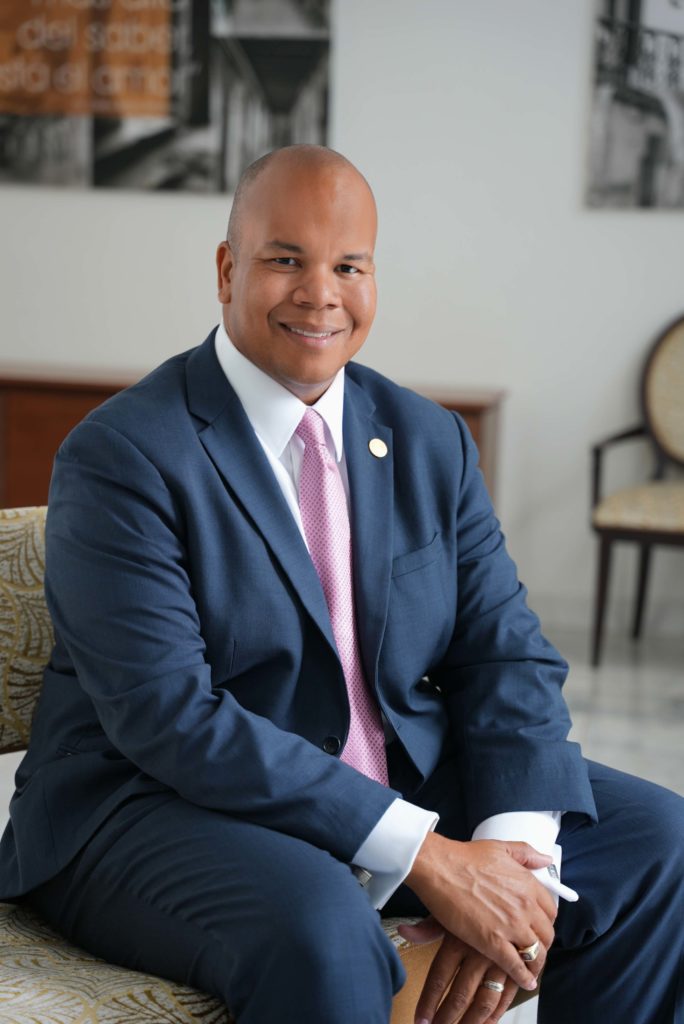
Which was the key factor for you to take on the challenge of becoming Albizu’s president?
Dr. Soto: That is a great question because I was born and raised in Ohio, in a town called Lorain, Ohio, and you probably say ‘ok what does that have to do with Albizu?’ But Lorain, Ohio has probably one of the largest Puerto Rican populations per capita outside the island. A lot of Puerto Ricans came in the forties, fifties, and sixties to look for great opportunities, and my parents were among them. My parents left Yauco to go to Lorain. In that community, we were always taught that Puerto Ricans in the diaspora were responsible to help the island no matter what, and so this is my way of giving back to the Island, and the only way I know how to do it is as a college administrator. And I thought, why not do it for the island and for my people and continue to grow? That’s why I’m here, and I’m excited to be here as the seventh president of Albizu University.
How is today’s college student different from the one 20 years ago?
Dr. Soto: I am part of that group from 25 years ago but I do not want to date myself. When I was looking for schools, the cost was important, the program was important, but more than that, I was just looking for an experience. I went to a school 4 hours away from home, because I had to stay within the state tuition price ranges. Right now students have access, in a way that they can go anywhere in the world, but not only that, they have access to content and materials. So really, the role of the university is to say what is the value proposition that we are going to provide that students cannot get when they just google “mental health” or they google some type of content knowledge. Our goal is to say that we have professors and clinicians that understand the day to day reality of the field you want to enter, that you cannot just get it from Google. Is the experiences you are paying for, the connections, the engagement that prepare you for your future aspirations.
Will you be promoting alliances or partnerships with other institutions?
Dr. Soto: This world that we live in right now, the pandemic, if nothing else, has taught us that we have one society, one global society, and to assume that we can exist without alliances and relationships is a fallacy. We will foster relationships through the world, especially in Latin America, because the product that we have, the education that we want to provide to the world, the need to treat mental health illnesses is not just for folks in Florida, in Puerto Rico, is for the world. In order to do that, we have to create relationships with other universities, other entities, and just be part of the global society. We are going to engage with others to make sure that mental health continues to be the top priority, and to make sure we provide content and knowledge for those who seek that information to be professionals in the future.
Tell us a little bit more about your background.
Dr. Soto: Like I said before, I am from Lorain, Ohio, very proud of being from Lorain, Ohio, boricua, hecho nacido y todo en Ohio. I have that connection to Yauco, my family is from Yauco, and I am very proud of being part of that diaspora from the southern part of the island, and it is that southern part of the Island, where I kept my cultural values and understanding. Is from those little places in Yauco that we learned how to love, and how to show love, how to care for others. And it is funny how that has translated throughout the Caribbean all the way up to Lake Erie to Ohio, and the third generations are raising their children and their nieces and nephews. I was born in Lorain. My parents came over when they were young, at 18 and 21. My mom actually graduated from the high school I attended, she didn’t know any English at all. Lorain is a community of steelworkers, and at that time, auto industry. Those industries have died down, but the Puerto Rican community stays strong in Lorain, and there’s two or three generations of Puerto Ricans in that community, all because of this little island that we call Puerto Rico, la Isla del Encanto, that brought all those values over to the mainland.
Precisely, Puerto Rico is no longer just the people who live in the Island. How do you explain to your colleagues and your kids that there are thousands of Puerto Ricans making big contributions all around the world?
Dr. Soto: I find it interesting. I was very fortunate that I was able to travel the world because my father worked for the airline industry. And I don’t care what part of the world I was, if I was in Africa, or if I was in Hawaii, there was always a Boricua around and doing great contributions worth sharing. And as we know, there are more than six millions Puerto Ricans that live in the mainland or outside the island, roughly three million here. Those six millions had their starting point in “esta islita”, and you cannot forget about that. To see the contributions that they are doing outside of Puerto Rico is amazing. My question is: what this world would be like without the Boricuas? I think we would have a different world, and we are much better as human beings because of the Boricuas are in this world. That is the reason why Albizu will stay here for another hundred years, because we export excellent education specially within the mental health field.
On a more personal note, what do you usually think about before falling asleep?
Dr. Soto: First, I think that we have got to take our pet Carmel out because he is used to hop in bed with us. Then I have to make sure, because I’m still a parent, I always check up on my kids, give them a little kiss, just making sure… I use the excuse that I am making sure they don’t have headphones on or are still watching TV. I just want to make sure that they are okay that night, and that nothing crazy is happening, and then by that time I check emails one last time. I know it’s a horrible habit, but I sleep with my phone. Then, I say goodnight to my wife, and usually by that time I am dead tired and I just go to bed and pray to God that I wake up the next morning.



